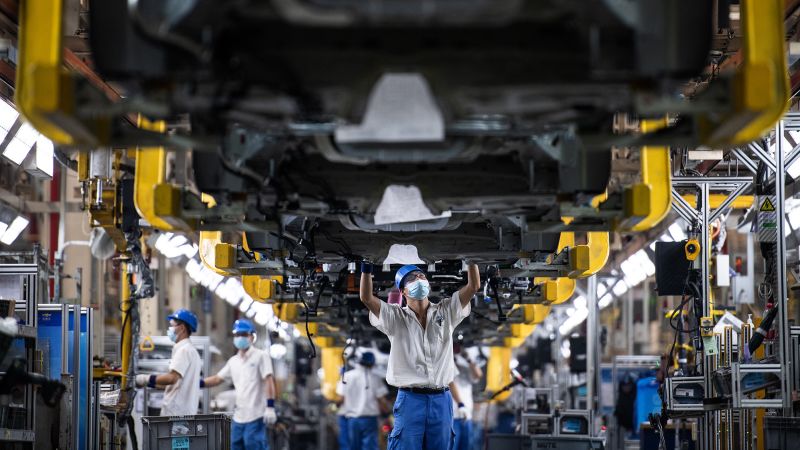World
Navigating a Changing World: Why Values, Adaptability, and Resilience Matter More Than Ever

In today’s rapidly changing world, it is increasingly clear that values matter. As we confront pressing issues such as social justice, climate change, and the weakening of democratic principles, it becomes essential to embrace core values like diversity, integrity, equality, and adaptability — not merely as ideals, but as necessities for progress.
To navigate these challenges effectively, we must also cultivate resilience and, perhaps most importantly, develop the ability to learn how to learn, rather than focusing solely on acquiring specific skills. So, how do we maintain our values, stay adaptable, and build resilience in a world that never stands still?
Values Matter Now More Than Ever
Discrimination, for example, remains a significant problem across the globe, in fact discrimination worsened in 70% of countries between 2021 and 2022. As our societies become more diverse, we must work to respect each other’s backgrounds, beliefs, and rights. This foundation of respect helps foster a democratic society where everyone has a voice, and where decisions reflect the needs and rights of all, not just a select few.
Democracy: A System of Rights and Responsibilities
Democracy, too, requires an ongoing commitment. In times of crisis or division, democratic values can sometimes take a backseat. But a healthy democracy depends on citizens who uphold the principles of justice and transparency. Sometimes, especially during crises and economic downturns, people are drawn to “loud voices,” but this should not be mistaken for good leadership. The democratic process, while sometimes perceived as slower, remains essential for ensuring fairness and thoughtful decision-making.
Democracy is more than a system of government; it embodies the values of freedom, equality, and justice to empower individuals. In democratic societies, innovation and creativity thrive because people are free and able to express ideas, challenge norms, and pursue progress.
It’s easy to take democracy for granted, especially in societies where it has long been the norm. History, however, teaches us that when we become complacent, democracy can quickly unravel. We need to actively uphold democratic principles, protecting our freedoms and those of future generations.
In a world where global issues affect everyone, democratic values remind us that our rights and freedoms are not guaranteed — they must be earned, defended, and nurtured.
Adaptability and the Art of Learning to Learn
The days of acquiring a fixed skill set and building a stable, unchanging career are long gone. Today, the rapid evolution of technology and industry means that many jobs look different in the future. So, one of the most valuable abilities we can cultivate is learning how to learn. In fact, according to the World Economic Forum, 44% of employees’ core skills are expected to change by 2027. This immense shift underscores the need for adaptability as workers learn to stay relevant in an evolving job market.
A significant part of this transformation is being driven by artificial intelligence (AI). As AI automates routine tasks and streamline workflows, some jobs are becoming obsolete, while entirely new roles are emerging. To thrive, workers must embrace lifelong learning and flexibility, acquiring skills that help them adapt to new roles or pivot into different fields altogether.
Being adaptable and willing to learn continuously empowers us to evolve as our world does. It enables us to take on new challenges, shift our perspectives, and solve problems. As Albert Einstein said, “Education is not the learning of facts, but the training of the mind to think.” That challenges our educational systems to keep up.
Learning how to learn prepares us to thrive in an uncertain future. By building this skill, we are equipping ourselves to step confidently into unfamiliar territory and to adapt to whatever comes our way. This adaptability goes hand-in-hand with resilience — an ability to bounce back from setbacks, rethink our approach when needed, and maintain our motivation even when the path ahead is unclear.
In the age of AI and rapid technological advancements, it’s not enough to develop technical skills alone; we must also cultivate a mindset geared toward adaptability, critical thinking, and empathy. Our attitude shapes our willingness to embrace change, understand diverse perspectives, and approach challenges with curiosity. These qualities define how effectively we learn, grow, and evolve. By fostering this mindset, individuals and organizations can navigate complexity with confidence and build a sustainable future.
Developing Resilience for a Complex World
In a world where uncertainty is the only constant, resilience is essential. It’s the inner strength that helps us face adversity and continue pushing forward. Resilience is not a trait we’re born with; it’s something we need to cultivate.
Building resilience begins with self-awareness. Recognizing when we need to take a step back, recharge, or reach out for support is vital. Reflection is key! Being deeply aware of our own strengths and weaknesses, while also embracing failures as opportunities to learn and grow, is crucial. By reframing setbacks as lessons, we build the mental and emotional tools needed to navigate challenges more effectively.
Resilient people also tend to maintain a positive yet realistic outlook. They’re optimistic about the future, but they also accept that setbacks are a natural part of life. Embracing a mindset of growth rather than a fear of failure helps build resilience and keeps us open to learning, improving, and adapting.
Moving Forward with Purpose
We live in a world filled with challenges, but we also live in a time of boundless opportunity. When we stand by our values, stay open to continuous learning, and cultivate resilience, we can face uncertainty with a sense of purpose and strength.
Thomas Saueressig is a member of the Executive Board of SAP SE, leading Customer Services & Delivery.










